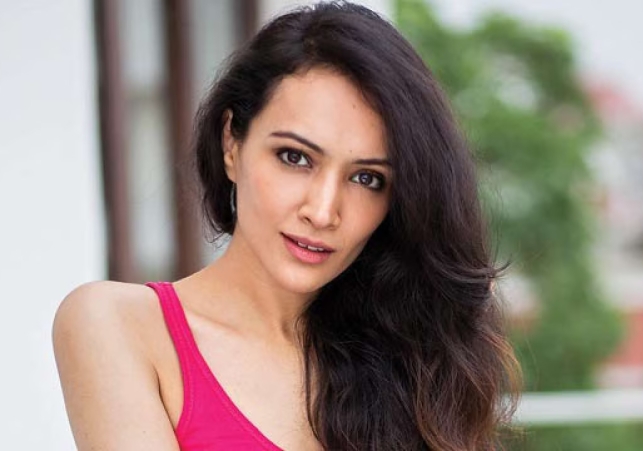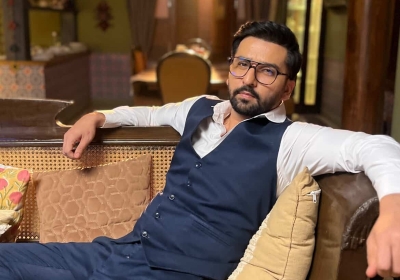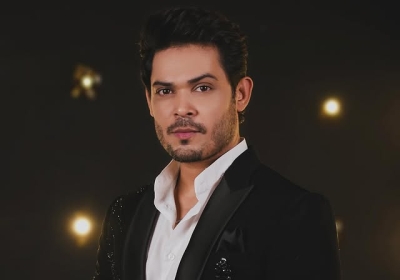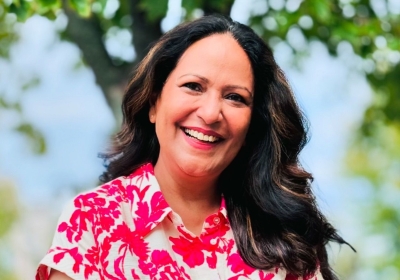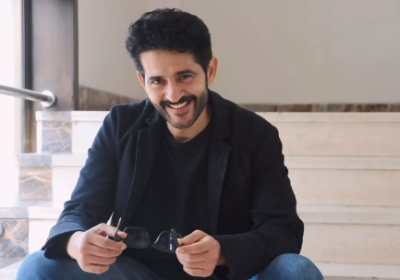Dipannita Sharma | Actress | Supermodel | Interview With TheTalkStreet
Dipannita Sharma is an Indian actress, supermodel, and television personality, hailing from Assam. She rose to fame as a finalist in the 1998 Miss India Pageant, where she won Miss Photogenic, launching her career in fashion and entertainment. A prominent face in the modeling world, she has walked for top designers and endorsed major brands.
Dipannita seamlessly transitioned to acting, earning acclaim for her roles in films like 16 December, Ladies vs Ricky Bahl, and Jodi Breakers. She has also made a mark on television as a host and judge on various shows. Known for her grace, talent, and versatility, she continues to be a celebrated figure in Indian fashion and cinema.
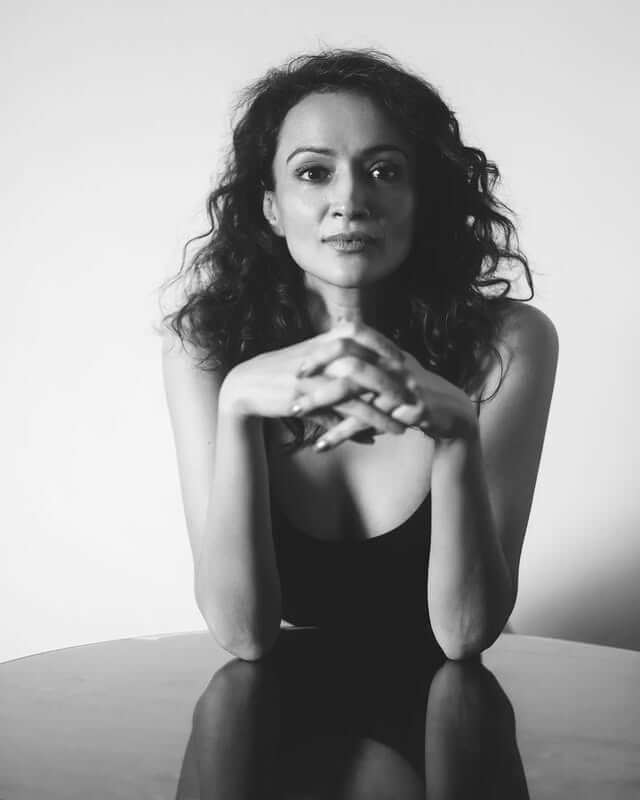
![]() What inspired you to pursue acting, and how did your journey in the entertainment industry begin?
What inspired you to pursue acting, and how did your journey in the entertainment industry begin?
As a child, I was always active on stage, participating in school plays and dramatics at our local club. My mom and Aita, my maternal grandmother, often wrote skits and plays, and naturally, my sister and I were the ones cast in them. These early experiences planted the seed of interest in acting, though back then, it was more of a hobby.
Throughout school and college, I remained deeply involved in dramatics and other cultural activities like singing and dancing. I trained in Hindustani classical vocals throughout my childhood, which was another passion of mine. Growing up in Assam, where cultural activities are an integral part of family life, I was encouraged to pursue my interests seriously. From attending singing and dancing classes to participating in school competitions and local club events, I embraced every opportunity to perform. I even won prizes in mono-acting competitions, which further fueled my enthusiasm for the stage.
These experiences collectively inspired me to consider acting as a profession. After establishing myself as a model, the idea of pursuing acting became a natural progression in my journey.
![]() Can you share a role that was particularly challenging for you to play, and how you prepared for it?
Can you share a role that was particularly challenging for you to play, and how you prepared for it?
Every role I've taken up has come with its own set of challenges, and honestly, that's what makes it exciting. Without challenges, the process wouldn’t be as fulfilling. I believe in creating a backstory for my character and understanding where they come from, but I try not to overthink how to play the role in advance. On set, things often change—the dynamics with co-actors, the setting, or even the director’s vision—so it's important to stay flexible and let the performance flow organically. Being too rigid in preparation can sometimes hinder spontaneity.
Speaking of challenges, my debut feature film, 16 December, was particularly demanding. I played Sheeba, a trained commando, which was quite unconventional for that time. The role required action sequences, which meant training and maintaining a disciplined regimen to look and act the part. It was a lot for a newcomer, but it was incredibly rewarding. The character and the film remain memorable even today, and it feels gratifying to know the hard work paid off.
Another significant challenge came with playing Reina Parulekar in Ladies vs Ricky Bahl. For this role, I had to adopt a French accent, something the makers and I developed together. Fortunately, I’ve always been interested in learning foreign languages, and at that time, I was studying a bit of French. That helped me bring authenticity to the character, and it’s wonderful to see how audiences still remember it years later.
Ultimately, it’s these challenges that make the experience richer—not just for me as an actor but also for the audience watching. Each role brings growth, fun, and lasting memories.
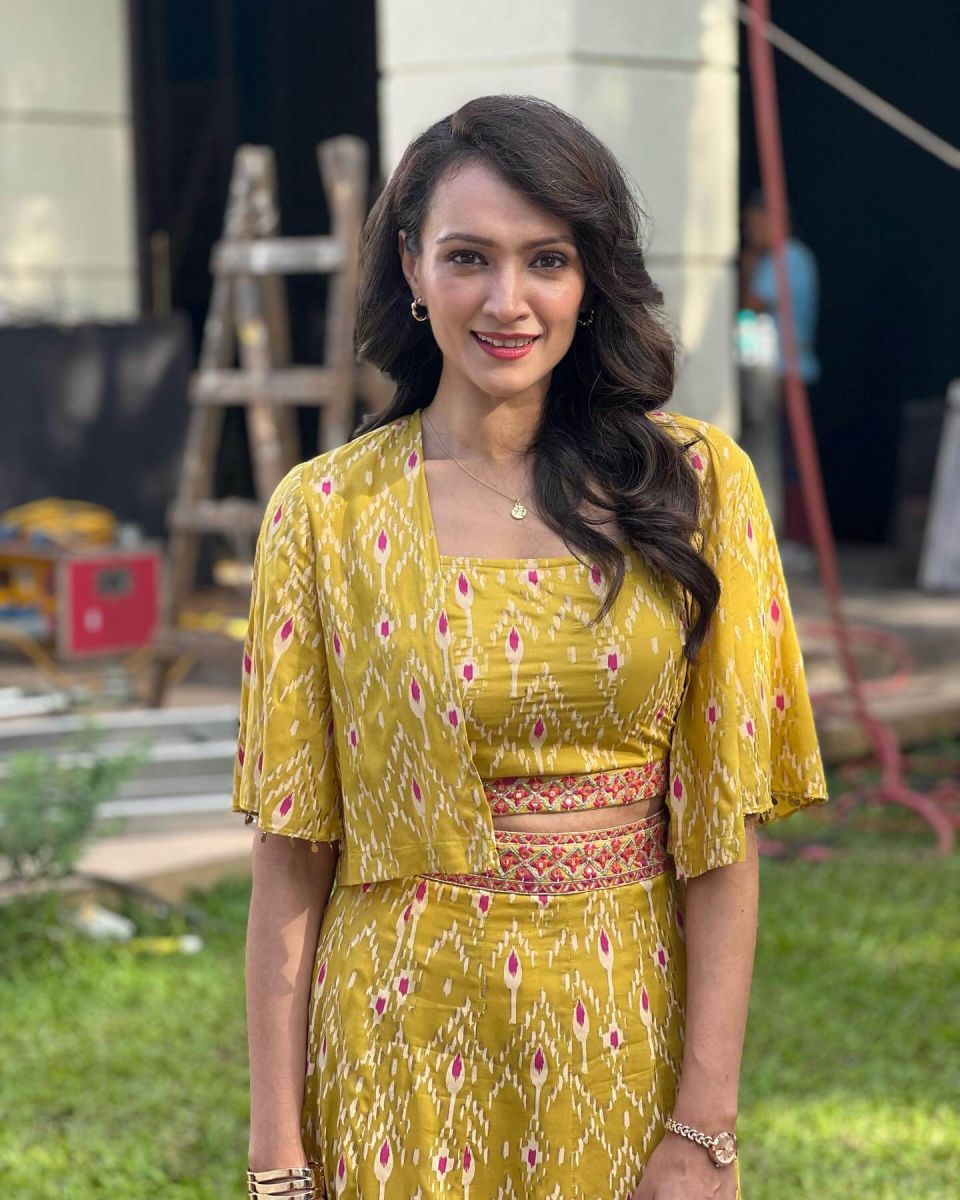
![]() What’s one thing people often misunderstand about being an actor?
What’s one thing people often misunderstand about being an actor?
One common misconception about being an actor is that many people outside the industry believe it’s all about glitz, glamour, and partying. They often overlook the immense hard work, dedication, and discipline required to succeed in this profession—or in any field connected to the glamour world. There’s a perception that everything is effortless and picture-perfect, but the reality is quite the opposite. The glamour you see on screen is the result of relentless effort and commitment behind the scenes. Over the years, I’ve come to realize that discipline is key to longevity in this career. Without it, sustaining success becomes incredibly challenging. This is something I’ve always stood by, and I feel it’s important to address this misconception. Behind the glamour lies a lot of hard work, which is often underestimated.
![]() How did you get started in modeling, and what was your first big break?
How did you get started in modeling, and what was your first big break?
I started modeling quite casually, initially participating in college fashion shows. Our college team often competed in inter-college contests, and during one of these events, I won a few titles like "Best Walk" and "Look of the Show." One of the prizes was a free portfolio shoot, which I did. Though the photos weren’t extraordinary, a lovely makeup artist named Yasmin noticed my potential. She connected me with photographers and agencies, leading to my first fashion editorial for a magazine.
From there, I started getting sent to auditions for fashion shows, which were well-received. Around this time, I also got selected to participate in Miss India, where I won the title of Miss Photogenic. That experience truly kickstarted my career, turning modeling into a full-fledged profession and eventually paving the way for my transition into acting.
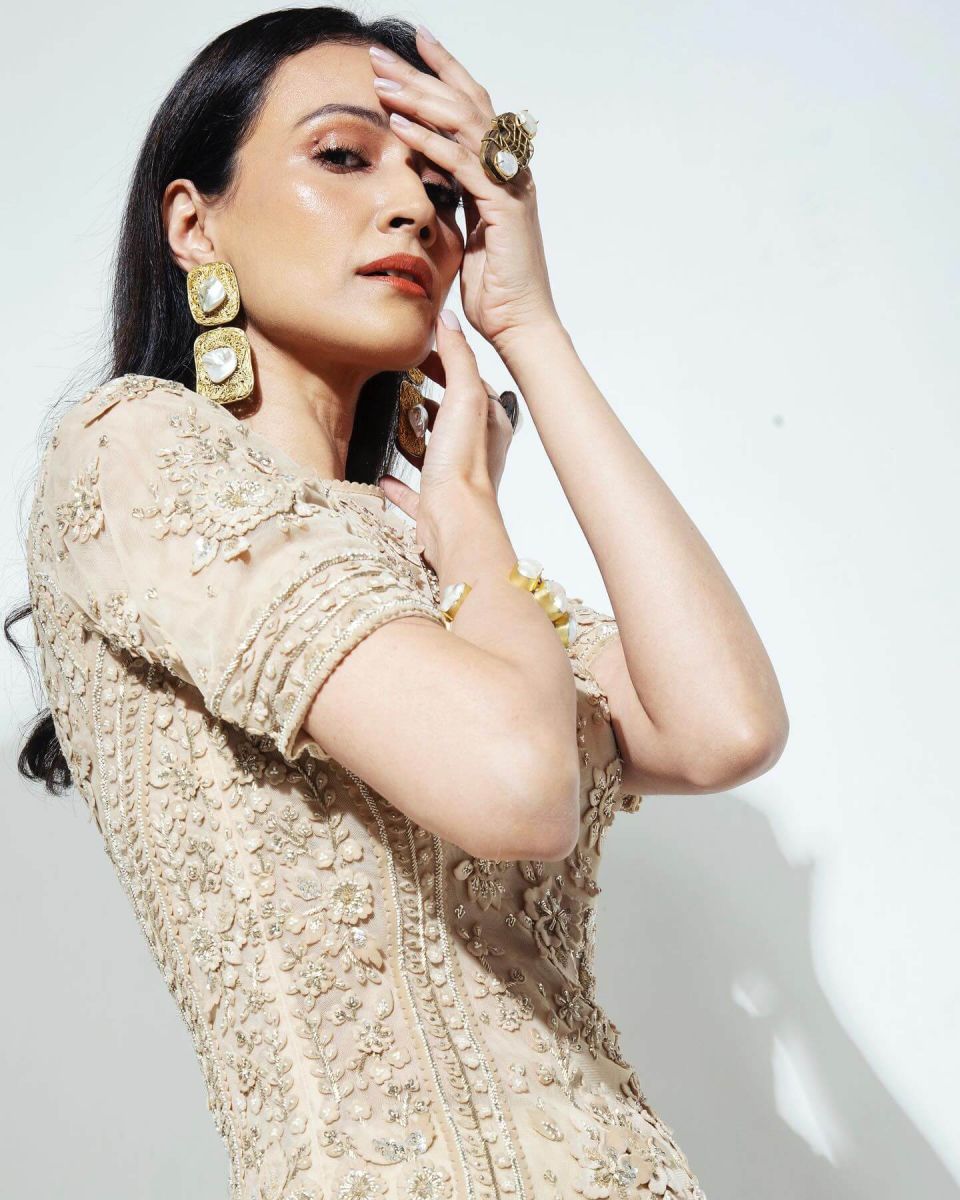
![]() The modeling world is known for its strict beauty standards. How do you maintain your confidence and individuality in such an environment?
The modeling world is known for its strict beauty standards. How do you maintain your confidence and individuality in such an environment?
As you rightly pointed out, individuality is one of the most important traits in industries like modeling and acting. Many people ask me about strict standards and insecurities in these fields, but honestly, when I attended my first audition as a model, I didn’t overthink it. I was still in college at the time, wearing baggy jeans, an oversized shirt, and Kolhapuri chappals. I had just finished my classes and went straight to the audition. Back then, I was living in a PG and didn’t even have a mobile phone. Someone had called my landlord to inform me about the audition. Without much thought or worry about how I looked or how many people would be there, I walked in with a mindset to give it my best shot. I didn’t let my frizzy hair or casual outfit bother me because I believed in my ability to do the job well. To my surprise, I booked the show despite my unconventional appearance, especially at a time when oversized shirts weren’t trendy. Over time, as I gained experience in fashion, I learned and grew in terms of personal style and presentation. But what likely secured me that spot was my individuality and confidence. Walking in as myself, unapologetically, made all the difference, and that’s a lesson I carry with me to this day.
![]() What was your favorite scene to film in Ladies vs Ricky Bahl, and why?
What was your favorite scene to film in Ladies vs Ricky Bahl, and why?
It's really hard to pick a favorite scene from Ladies vs. Ricky Bahl because there are so many I love. However, the one where I perform with a French accent definitely stands out. It was an interesting challenge since I didn’t know how it would come across on screen, but it turned out really well. Initially, that scene was written differently, but after brainstorming with the makers and sharing ideas, we decided that my character should speak with a French accent. It added a unique touch, and I’m proud of how it all came together.
What makes it even more special is that, at the time, a French accent hadn’t really been attempted in a mainstream commercial Hindi film—or at least not one that I can recall. Knowing that I brought something fresh and was able to use my knowledge to enhance the character makes it a memorable moment in my career.
![]() How was your experience working with the ensemble cast, including Ranveer Singh and Anushka Sharma?
How was your experience working with the ensemble cast, including Ranveer Singh and Anushka Sharma?
Working with two incredible talents like Ranveer Singh and Anushka Sharma was absolutely wonderful. I had modeled with Anushka before—she started her career in Bangalore, and we walked the ramp together a few times. Even back then, I really liked her and saw great potential in her. I used to tell her that too, so it was really special to work with her in a film and see how successful she’s become.
Ranveer was relatively new at the time—probably doing his second or third film—but his energy on set was incredible. He kept the atmosphere fun and lively while being extremely hardworking and detail-oriented. I think his dedication and enthusiasm are big reasons for his success today.
If I had to describe Ranveer in one word, it would be "abundant energy." His enthusiasm and dedication were inspiring. Overall, it was an absolute joy collaborating with both these extraordinary artists.

![]() Can you describe the character you played in Kooki? What attracted you to this role?
Can you describe the character you played in Kooki? What attracted you to this role?
In Kooki, I play a cop who is completely focused on her duties. She’s investigating a serious crime against a young girl. Even though she feels for the victim as a woman, she knows she has to stay professional and focus on solving the case and catching the culprits. Her job always comes first.
This was my first time playing a cop in uniform, set in a small-town environment. What I loved about this character is how real and simple she is—there’s no glamour, just hard work and dedication. She’s honest, determined, and always means what she says. That mix of being caring but staying professional is what made this role so special to me.
![]() How has working in both movies and TV impacted your versatility as an actor?
How has working in both movies and TV impacted your versatility as an actor?
Working in both television and movies has been a great experience. Television is especially good for training your memory. I remember doing a limited series for Star Plus and Disney+ Hotstar, where we were often given pages of dialogue right on set. It really pushed me to learn my lines quickly, which improved my ability to memorize under pressure.
Time is always tight in television, whether you’re acting or hosting. I once hosted a show on Zoom where we had to shoot two episodes a day. Sometimes, the teleprompter was taken away to make it look more natural, so I had to memorize everything. It was great training—not just to learn my lines but also to make them sound natural and spontaneous. You even end up remembering your co-actors’ lines to keep the scenes smooth. Television actors are amazing at this, and I learned a lot from them, including my younger sister, who also worked in television.
Movies are different because you get more time to think about your character and plan how to play them. When you combine the quick learning from television with the thoughtful preparation from movies, it really helps improve your performance. It’s a mix of skills that has helped me create characters I feel connected to.
*********************
TheTalkStreet is an innovative online digital magazine that amplifies the voices of Entrepreneurs, Bloggers, Celebrity, Startups, Trend setters, Influencers, Peoples, Social empowerment and more. Through our website and social media platforms, we share compelling stories and conduct insightful interviews to connect with our diverse audience. Additionally, we strategically run advertisements across various platforms to help you generate valuable leads.
Embrace the opportunity to showcase your journey, achievements, and vision, establishing you & your brand as a leader in your industry. Join www.thetalkstreet.com , to inspire, engage, and connect with a global community eager to embrace innovative ideas and transformative experiences.
If you have a compelling story to share with our readers, please reach out to us at hello@thetalkstreet.com We will carefully evaluate your submission and may extend an invitation to feature it if it meets our publishing standards.


